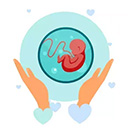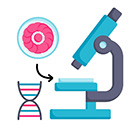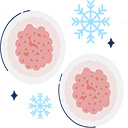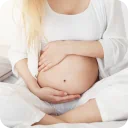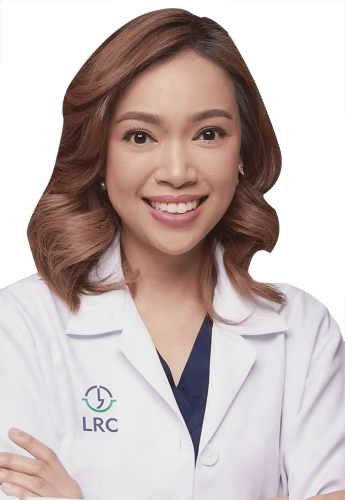Can IVF Lead to Breast Cancer? Unpacking the Facts, Myths, and Latest Research
When you’re thinking about starting a family through in vitro fertilization (IVF), it’s natural to have questions—and maybe even some worries. One concern that pops up a lot is whether IVF could increase your risk of breast cancer. After all, IVF involves hormones, and we’ve all heard that hormones can play a role in cancer. But what does the science really say? Is this a real risk, or just another fertility myth floating around?
In this deep dive, we’re going to explore everything you need to know about IVF and breast cancer. We’ll look at the latest studies, break down how IVF works, and even tackle some questions that don’t get enough attention—like what happens if you’ve already had breast cancer or how your family history fits into the picture. By the end, you’ll have a clear, honest picture of the risks (or lack thereof) and some practical tips to feel confident about your choices.
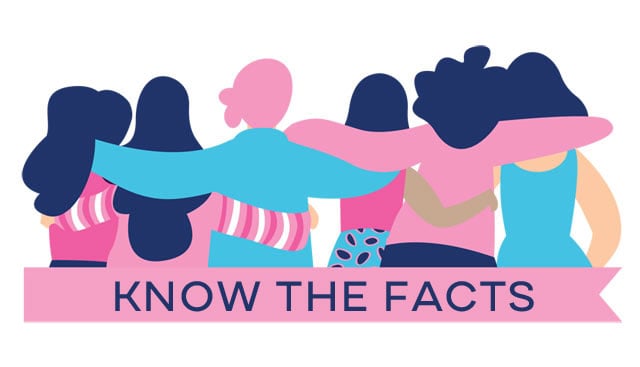
What Is IVF, and Why Are People Worried About Breast Cancer?
IVF is a process where doctors help you get pregnant by combining an egg and sperm outside the body and then placing the embryo into your uterus. It’s a game-changer for millions of people facing infertility, but it’s not as simple as it sounds. To make it work, you take medications—usually hormones like follicle-stimulating hormone (FSH) and sometimes clomiphene citrate—to boost your ovaries into producing more eggs. These hormones ramp up your estrogen levels, sometimes way higher than normal.
Here’s where the worry comes in: estrogen is known to fuel certain types of breast cancer, especially the kind that’s “hormone receptor-positive.” So, if IVF floods your body with extra estrogen, even for a short time, could that nudge your breast cancer risk up? It’s a fair question, and one that researchers have been digging into for decades.
The Big Picture: What Studies Say About IVF and Breast Cancer Risk
Good news first—most research shows that IVF doesn’t increase your chances of getting breast cancer. Let’s unpack some of the heavy hitters in the science world to see why.
A massive study from the Netherlands, published in JAMA in 2016, followed over 25,000 women who went through IVF between 1980 and 1995. After tracking them for about 20 years, the researchers found that breast cancer rates were almost identical between the IVF group (3%) and the non-IVF group (2.9%). Even better? Women who did seven or more IVF cycles actually had a lower risk compared to those who did just one or two. That’s a pretty strong sign that IVF itself isn’t the bad guy here.
Then there’s a 2022 meta-analysis in BJS Open. This one looked at 25 studies with over 600,000 women total. After crunching the numbers, they concluded there’s “no significant breast cancer risk” tied to fertility treatments like IVF. They even checked if specific drugs—like clomiphene or gonadotropins—made a difference. Spoiler: they didn’t find a link.
But it’s not all black-and-white. A few studies have raised eyebrows. For example, a 2019 Danish study suggested that women over 40 who gave birth after IVF had a 65% higher chance of breast cancer. Sounds scary, right? Except the overall cancer rates were still super low (less than 1% of women), and the researchers couldn’t rule out other factors—like having kids later in life, which is a known risk booster on its own.
So, What’s the Verdict?
The weight of the evidence leans heavily toward “no risk.” The hormone spikes in IVF are short-lived—think weeks, not years—unlike the long-term estrogen exposure from, say, early periods or late menopause, which does bump up breast cancer odds. IVF’s temporary boost just doesn’t seem to have the same effect.
Why the Confusion? Untangling the Myths
If the science is so reassuring, why do people still worry? Let’s break down a few reasons.
Hormones Sound Scary
When you hear “hormones” and “cancer” in the same sentence, it’s easy to jump to conclusions. Estrogen can feed breast cancer, but the key is duration. IVF uses high doses for a short time, not a constant drip over decades. It’s like comparing a quick rain shower to a month-long flood—only the flood really changes the landscape.
Infertility Itself Might Play a Role
Here’s something not everyone talks about: women who need IVF might already have a slightly higher breast cancer risk because of infertility. Things like never having kids (nulliparity) or ovulating less often can tweak your odds, totally separate from IVF. Studies often compare IVF patients to the general population, which can muddy the waters.
Small Studies, Big Headlines
Every so often, a small study pops up with a hint of risk—like that Danish one—and it grabs attention. But small studies are less reliable than big ones, and headlines love drama more than nuance. The bigger, better studies consistently say “no big deal.”
Digging Deeper: 3 Things You Haven’t Heard Enough About
Most articles stop at the basic “IVF doesn’t cause breast cancer” line, but there’s more to the story. Here are three angles that deserve more spotlight—and might matter to you.
1. What If You’ve Already Had Breast Cancer?
If you’re a breast cancer survivor dreaming of a baby, IVF might feel like a gamble. Will those hormones wake up any leftover cancer cells? Surprisingly, this doesn’t get much airtime, but it’s a huge deal for survivors.
The good news: studies suggest IVF is safe for many survivors. A 2015 review in PMC looked at fertility preservation for breast cancer patients (like freezing eggs before chemo). They found that using special protocols—like adding drugs like letrozole to keep estrogen levels low—didn’t increase recurrence rates over a short follow-up (about two years). Long-term data is still thin, but it’s a hopeful start.
Practical Tip: Talk to your oncologist and a fertility specialist together. They can tailor a plan—like using letrozole or tamoxifen during IVF—to minimize risks while chasing your family goals.
2. Does Family History Change the Game?
Got a mom or sister with breast cancer? You might wonder if IVF is riskier for you. Most studies don’t dive deep into this, but it’s a valid concern since inherited genes (like BRCA1 or BRCA2) already up your odds.
A 2020 article from the National Cancer Institute noted that women with a strong family history might have denser breasts—a risk factor—especially if they’ve used fertility drugs. But here’s the kicker: no study has directly tied IVF to higher breast cancer rates in BRCA carriers. The hormone spike might sound risky, but there’s no solid proof it tips the scales.
Action Step: Get genetic testing if breast cancer runs in your family. Knowing your BRCA status can guide your IVF decisions and screening plans (like more frequent mammograms).
3. Long-Term Effects After Multiple Cycles
What happens if you go through IVF five, six, or more times? Most research focuses on one or two cycles, but repeated hormone jolts could theoretically add up. The Dutch study hinted that more cycles might even lower risk, but that’s not the full story.
A small 2017 Israeli study found a slight (non-significant) uptick in ovarian cancer risk with four or more IVF cycles. Breast cancer data is less clear, but it’s worth asking: could years of on-and-off stimulation nudge your cells in a bad direction? We don’t have a firm answer yet—follow-ups are still ongoing—but it’s a gap in the conversation.
What You Can Do: Space out cycles if possible, and ask your doctor about “milder” protocols (less hormone-heavy) for repeat tries. It’s about balancing fertility success with peace of mind.
Interactive Check-In: How Much Do You Know?
Let’s pause for a quick quiz—grab a pen or just think it through!
- True or False: IVF hormones are the same as hormone replacement therapy (HRT) for menopause.
- Answer: False! IVF uses short bursts of hormones; HRT is long-term. Big difference for cancer risk.
- What’s one reason infertility itself might raise breast cancer odds?
- Hint: Think about pregnancy history.
- Name one drug that can lower estrogen during IVF for breast cancer survivors.
- Options: Clomiphene, Letrozole, Gonadotropins.
(Answers: 2. Never having kids; 3. Letrozole)
How’d you do? This stuff can feel overwhelming, but breaking it down helps!
Who’s Most at Risk? Breaking Down the Factors
IVF doesn’t seem to cause breast cancer, but some groups might still wonder if they’re in a gray zone. Let’s look at who might need extra caution.
Age Matters—But Not How You Think
Older women (over 40) doing IVF don’t automatically face higher breast cancer risk from the treatment. That Danish study tied late IVF births to more cases, but age itself—especially delaying kids—is the real player. Younger women (under 30) starting IVF have shown a tiny risk bump in some studies, though it’s not consistent.
Family History and Genetics
If you’ve got BRCA mutations or a loaded family tree, your baseline risk is higher—IVF or not. The hormones might not cause cancer, but they could speed up something already brewing. No proof yet, but it’s smart to stay vigilant.
Lifestyle Overlaps
Smoking, obesity, or skipping breastfeeding can all nudge your breast cancer risk up. IVF doesn’t add to that pile, but these factors don’t vanish during treatment.
Quick Checklist:
✔️ Age over 40? Focus on regular screenings, not IVF worries.
✔️ Family history? Genetic counseling is your friend.
❌ Smoking or extra weight? Tackle those first—they matter more.
What About the Drugs? A Closer Look at IVF Meds
IVF isn’t just one thing—it’s a cocktail of drugs working together. Do any of them stand out as risky? Let’s peek under the hood.
Clomiphene Citrate
This pill tricks your brain into making more eggs. It’s been around forever, and some older studies (like one from the NCI in 2020) linked high doses (12+ cycles) to a slight breast cancer bump. But modern IVF rarely uses that much—usually it’s one or two rounds max.
Gonadotropins
These injections (FSH, LH) supercharge your ovaries. They spike estrogen big-time, but the 2022 meta-analysis found no cancer link, even with multiple cycles.
Letrozole
Used more for cancer survivors, this keeps estrogen low while still helping eggs grow. Early data says it’s safe, but we need more years to be sure.
Bottom Line: The drugs don’t seem to be the culprits. It’s the why you’re using them (infertility) that might matter more.
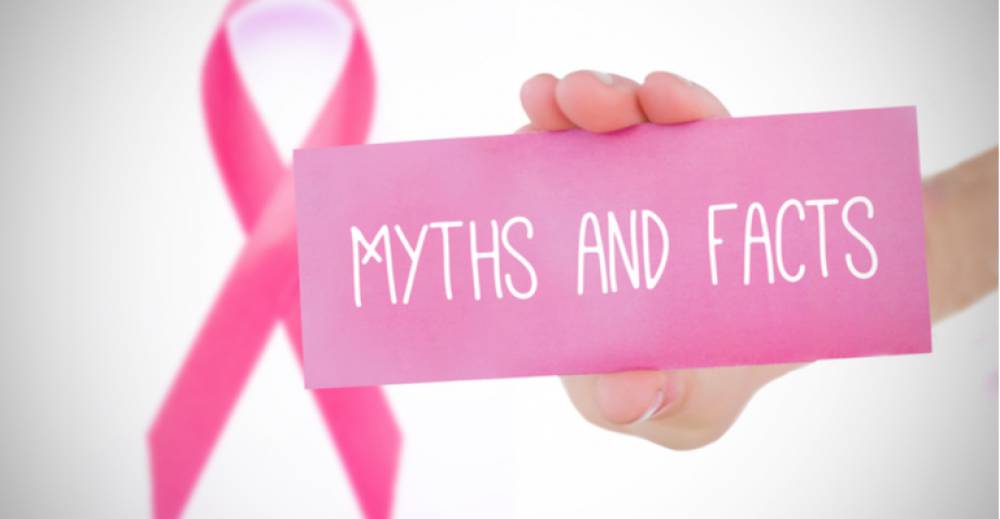
Real Stories: What Women Are Saying
Numbers are great, but what about real life? On platforms like X, women share their IVF journeys—and their fears. One user posted in 2025, “Just finished my third IVF round. My doc says no breast cancer risk, but I’m still nervous—anyone else?” Another replied, “Five cycles here. Clean mammogram last month. Trust the science!”
These snippets show the mix of hope and worry out there. Studies back up the “no risk” side, but feelings don’t always follow data. That’s why talking to your doctor—and other women—can make a difference.
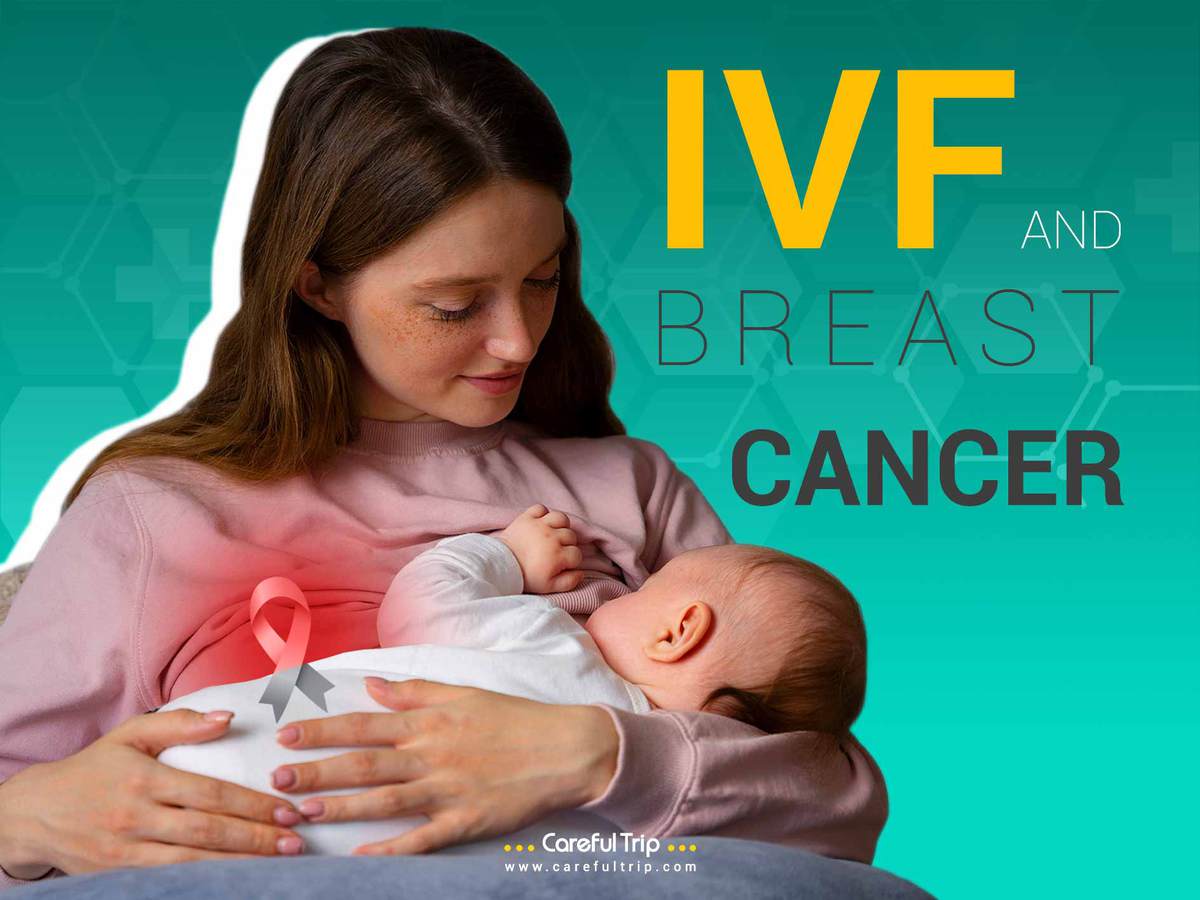
Vote Time: What Worries You Most?
Let’s get interactive again! Pick one:
- A) The hormones in IVF
- B) My family history
- C) Doing multiple cycles
- D) Something else (tell us in your head!)
Your answer doesn’t change the facts, but it might spark a chat with your doc about what’s on your mind.
Practical Tips: Navigating IVF With Confidence
Whether you’re just curious or ready to start IVF, here’s how to move forward without losing sleep over breast cancer.
Step 1: Know Your Baseline
Get a mammogram or breast exam before IVF if you’re over 40 or have a family history. It’s a snapshot of where you’re at—no surprises later.
Step 2: Ask About Mild Protocols
Fewer hormones might mean less worry. “Mini-IVF” uses lower doses and could be an option if you’re on the fence.
Step 3: Team Up With Your Doctors
Your fertility doc and primary care physician should be in sync. Share your full health history—cancer included—so they can customize your plan.
Step 4: Keep Up Screenings
IVF or not, regular breast checks (self-exams, mammograms) are your safety net. Don’t skip them during treatment.
Bonus Tip: Stress less. Studies show anxiety doesn’t cause cancer, but it sure makes IVF harder. Yoga, walks, or a good chat with a friend can lighten the load.
The Future: What’s Next for IVF and Cancer Research?
Science isn’t done yet. Here’s what’s on the horizon—and why it matters to you.
Longer Follow-Ups
Most studies track women for 10-20 years. As IVF patients from the ‘90s hit their 60s, we’ll get a clearer picture of postmenopausal risks. Stay tuned.
Better Tech
Newer IVF methods—like milder stimulations or frozen embryo transfers—might shift the game. Early signs say they’re just as safe, if not safer.
Personalized Medicine
Imagine IVF tailored to your genes. If you’re BRCA-positive, future protocols could tweak hormones to near-zero risk. It’s not here yet, but it’s coming.
My Take: We’re in a golden age of fertility research. The more we learn, the less we’ll guess—and the more you’ll trust your options.
A Simple Calculation: Your Risk in Perspective
Let’s do a quick, original number-crunch to put this in context. Say 1 in 8 women (12.5%) get breast cancer in their lifetime (per the American Cancer Society). If IVF added a 1% risk—which it doesn’t, but let’s pretend—that’s still just 13.5%. Compare that to smoking, which can double your odds to 25%. IVF’s “risk” (or lack of it) is a drop in the bucket next to lifestyle factors.
Wrapping It Up: Your Takeaway
After diving into the studies, stories, and science, here’s the bottom line: IVF doesn’t seem to lead to breast cancer. The hormone spikes are short, the data is solid, and even for survivors or multi-cycle warriors, the risks stay low. Infertility itself might nudge your odds up a bit, but that’s not the same as IVF pulling the trigger.
You’ve got power here—knowledge, options, and a team to guide you. Whether you’re weighing IVF for the first time or wondering about round five, focus on what you can control: screenings, lifestyle, and honest talks with your doctor. The rest? Science has your back.
So, take a deep breath. Your dream of a family doesn’t have to come with a cancer shadow. What’s your next step—chatting with a doc, booking a mammogram, or just enjoying the relief? Whatever it is, you’re ready.

